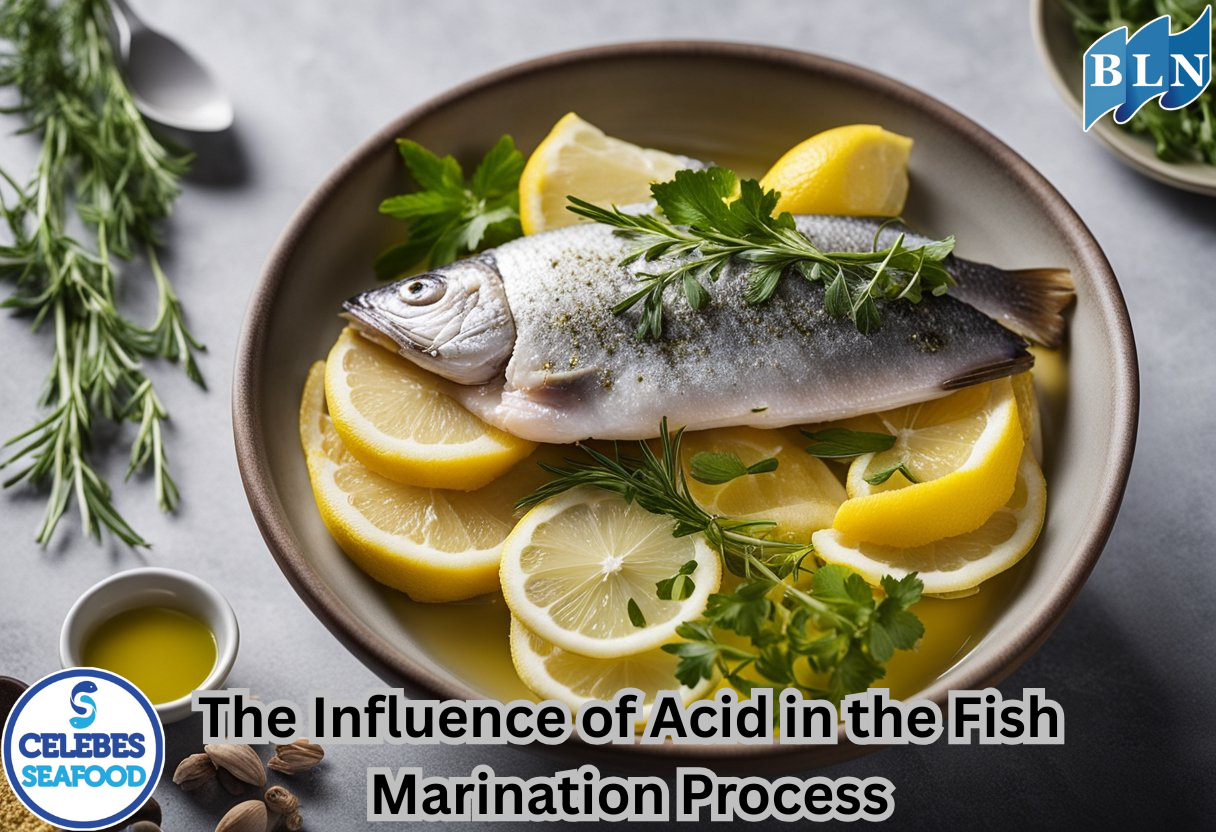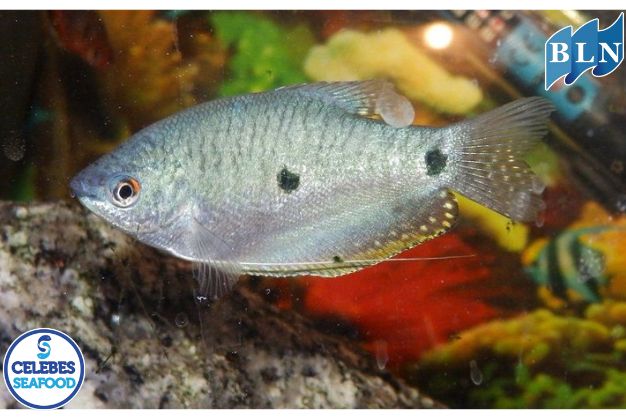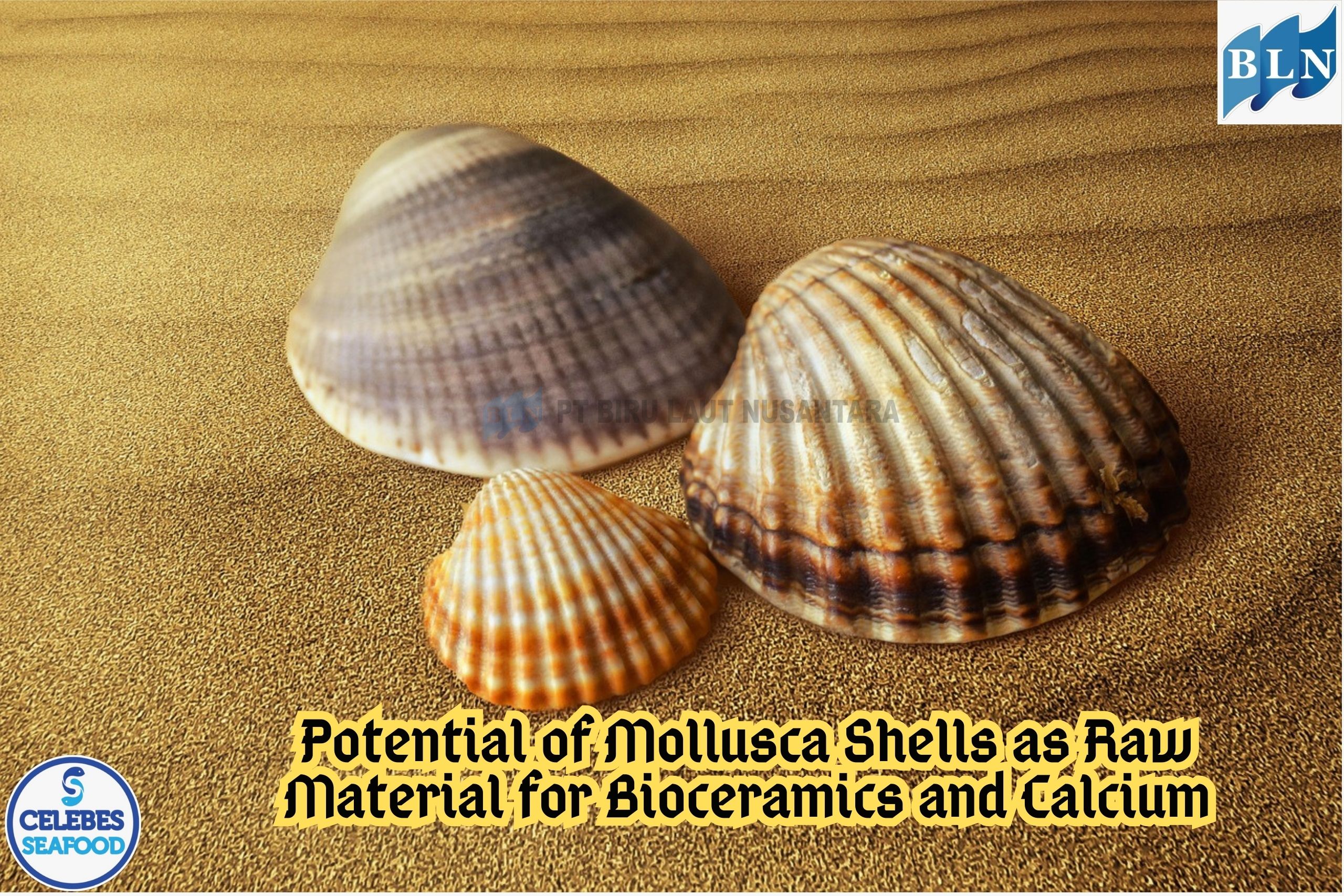The Influence of Acid in the Fish Marination Process
By. Tri - 08 Sep 2025
lautnusantara.com_ Marination is a food preparation technique that has been used for centuries across many culinary traditions. Essentially, it involves soaking food, including fish, in a mixture of seasonings that often includes salt, herbs, oil, and one of the most essential components: acid. The addition of acid in fish marination not only enhances flavor but also has significant effects on texture, aroma, safety, and overall quality.
Fish is widely known as a valuable source of protein, omega-3 fatty acids, vitamins, and minerals. However, it is also highly perishable due to its delicate muscle structure and high water content. Therefore, marination with acidic ingredients serves as an effective method to preserve freshness while also enhancing palatability.
1. Texture Modification by Acid
One of the most noticeable impacts of acid during fish marination is the change in muscle texture. Acids from lemon, lime, vinegar, or citric acid induce protein denaturation, a process in which proteins unravel and lose their natural structure. This loosens muscle fibers, making the fish softer and more tender.
This effect can be compared to “cooking” without heat, as seen in the Latin American dish ceviche, where raw fish is soaked in lime juice until its texture changes to resemble that of cooked fish.
2. Enhancement of Flavor and Aroma
Acid also plays a central role in shaping taste. It provides a refreshing, tangy note that reduces the fishy odor commonly associated with seafood. For instance, lemon or lime juice not only masks undesirable smells but also imparts a fragrant aroma that elevates the dish.
In many Asian cuisines, acid-based marinades are combined with spices such as garlic, ginger, or turmeric to create complex layers of flavor. This combination results in fish that is both delicious and more universally appealing.
3. Antimicrobial Effect and Food Safety
Another important benefit of acid in marination is its impact on food safety. By lowering the pH on the fish surface, acids create an unfavorable environment for microbial growth, including spoilage organisms and pathogens.
Although not as effective as refrigeration or freezing, acid marination serves as a natural preservation method that slows down spoilage. This makes it especially valuable in traditional and household cooking practices.
4. Nutritional Considerations
While acid marination offers many benefits, it may also affect the nutritional quality of fish if overused. Water-soluble vitamins, such as the B-complex group, can leach into the marinade solution during prolonged soaking. Excessive denaturation of protein can also make the texture mushy rather than pleasantly tender.
To minimize nutrient loss while still gaining the benefits of marination, balance is key. Typically, thin fillets require only 15–30 minutes of marination, while whole fish may need 1–2 hours, depending on the type of acid and recipe.
5. Types of Acids Used in Fish Marination
A variety of acids are commonly used in fish marination, each contributing unique characteristics:
- Lemon or lime juice: Adds freshness, reduces fishy odor, and improves aroma.
- Vinegar (acetic acid): Provides a sharp tang, widely used in pickling fish for preservation.
- Tamarind or bilimbi (kamias): Common in Southeast Asian cooking, offering a natural sour flavor.
- Citric acid (powder form): Popular in food processing for controlled acidity levels.
The choice of acid often depends on the purpose—whether to enhance taste, mask odors, or extend shelf life.
6. Practical Applications in Culinary Traditions
Acid marination is used in a wide variety of traditional dishes, such as:
- Grilled fish, marinated in lime juice, garlic, and salt.
- Pepes ikan (Indonesian steamed fish in banana leaves), often seasoned with tamarind for freshness.
- Ceviche, where raw fish is marinated solely in citrus juice, resulting in a refreshing and tangy dish.
These examples highlight how acids not only preserve but also define the signature flavors of regional cuisines.
The use of acid in the fish marination process provides numerous benefits—from tenderizing the flesh, enhancing flavor, and reducing fishy odors to slowing microbial growth and improving food safety. However, careful control of both acid concentration and marination time is essential to prevent nutrient loss and overly soft textures.
If you are interested in our OCTOPUS WHOLE CLEANED BALL TYPE, OCTOPUS WHOLE CLEANED FLOWER TYPE please do not hesitate to contact us through email and/or whatsapp.







